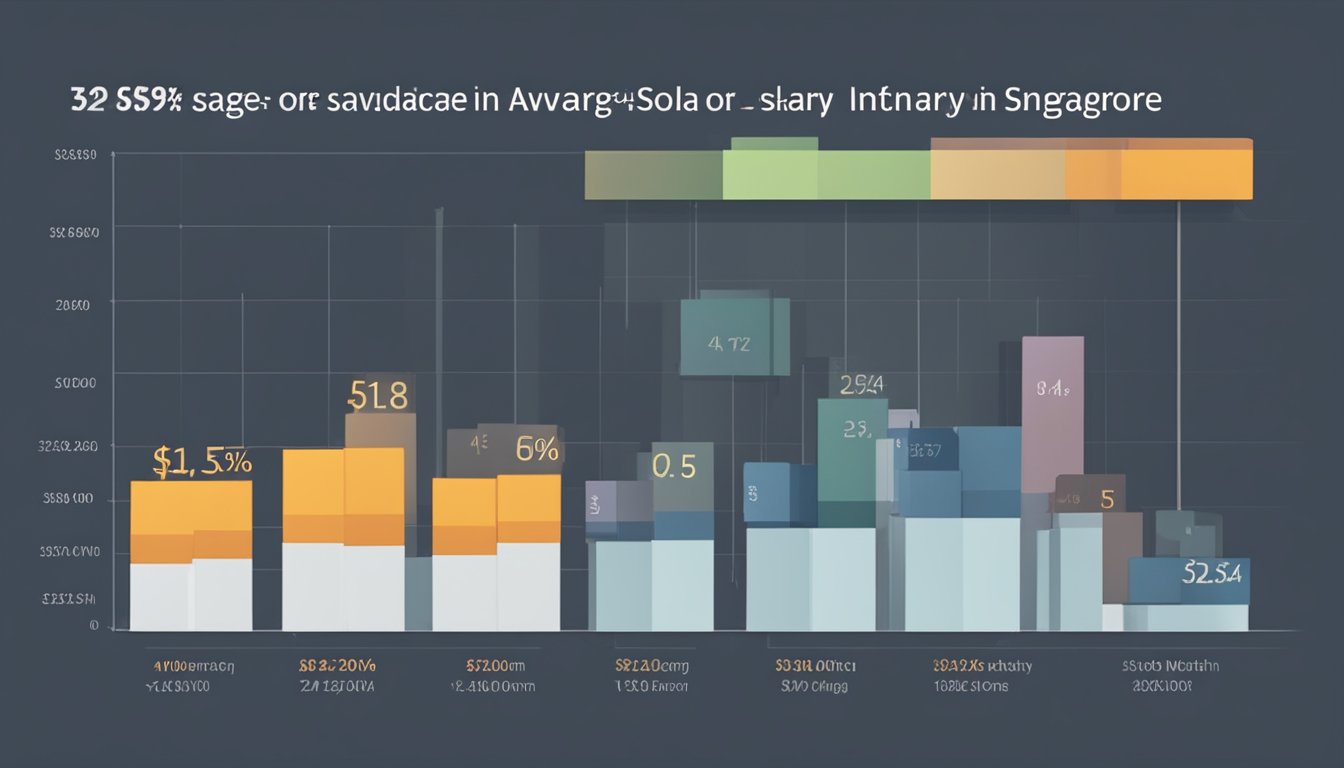Are you considering a career in social work in Singapore? One of the most important factors to consider is the salary you can expect to earn. Social work is a rewarding profession that involves helping people in need, but it’s important to know what kind of income you can expect to earn before committing to the field. In this article, we will explore the topic of how much social workers make in Singapore, including the average salary range and factors that can affect your earning potential.

Social workers in Singapore play a critical role in helping vulnerable individuals and families. They work in a variety of settings, including hospitals, schools, and social service agencies. As a social worker, you may be responsible for providing counselling, support, and advocacy services to people in need. While the work can be challenging, many social workers find it incredibly fulfilling to make a positive impact on the lives of others. So, how much can you expect to earn as a social worker in Singapore? Keep reading to find out.
1 Min Read
Don’t have time to read the whole article? Here’s a quick breakdown:
- Social workers in Singapore can expect a salary range of SGD $2,570 to over $11,000 per month.
- Entry-level social workers typically start around $3,500 per month.
- Experience, education, and specialization can significantly impact your earning potential.
- Social workers in management or executive roles can earn over $11,000 per month.
- The job outlook for social workers in Singapore is positive, with a projected growth of 1.2% by 2023.
Considering a career in social work? This rewarding profession offers the chance to make a real difference while also providing competitive compensation.
Overview of Social Work in Singapore

If you are interested in pursuing a career in social work in Singapore, it is important to understand the role of a social worker and the sectors in which they work.
The Role of a Social Worker
Social workers in Singapore play a crucial role in helping individuals and families in need. They provide support and guidance to those who are experiencing difficulties in their lives, such as financial problems, family conflicts, mental health issues, and more.
As a social worker, you will work closely with clients to identify their needs and develop a plan to help them overcome their challenges. You may also collaborate with other professionals, such as doctors, nurses, and psychologists, to provide comprehensive care to your clients.
Sectors in Social Work
Social work in Singapore is a diverse field, with opportunities in various sectors. Some of the common sectors in which social workers work include:
- Child Protection: Social workers in this sector work to protect children from abuse and neglect. They may work with families, schools, and other agencies to ensure the safety and well-being of children.
- Family Services: Social workers in family services help families to overcome challenges such as financial difficulties, marital conflicts, and parenting issues. They may provide counselling, mediation, and other forms of support to help families stay together and thrive.
- Healthcare: Social workers in healthcare settings work with patients and their families to provide emotional and practical support. They may help patients to cope with a diagnosis, navigate the healthcare system, and access community resources.
- Mental Health: Social workers in mental health settings provide support to individuals who are experiencing mental health issues. They may provide counselling, therapy, and other forms of support to help individuals manage their symptoms and improve their quality of life.
Overall, social work is a rewarding and exciting career that allows you to make a positive impact on the lives of others. If you are passionate about helping people and making a difference in your community, social work may be the right career path for you.
Qualifications and Training

As a social worker in Singapore, there are certain educational requirements and professional development opportunities that you should be aware of in order to succeed in this field.
Educational Requirements
To become a social worker in Singapore, you will need to have a recognised full-time or part-time Bachelor’s degree in Social Work, a Graduate Diploma in Social Work or a Master’s in Social Work from an SASW accredited tertiary institution [1]. These programmes will provide you with the knowledge and skills necessary to work in the field of social work.
During your studies, you will learn about various topics such as human development, social policy, counselling, and community work. You will also have the opportunity to gain practical experience through internships and field placements.
Professional Development
As a social worker, it is important to continue your professional development throughout your career. This can include attending workshops, conferences, and training sessions to stay up-to-date with the latest research and best practices in the field.
In addition, you may also consider pursuing advanced certifications or degrees to further enhance your skills and knowledge. For example, you could pursue a Master’s degree in Social Work with a specialisation in a specific area such as healthcare, child welfare, or mental health.
Overall, becoming a social worker in Singapore requires a strong educational background and a commitment to ongoing professional development. By continuing to learn and grow in your field, you can make a real difference in the lives of those you serve.
[1] Source: Training Pathway – SASW
Salary Expectations

If you are considering a career as a social worker in Singapore, you may be wondering what kind of salary you can expect to earn. The good news is that social work is a rewarding profession that can also be financially lucrative.
Entry-Level Salaries
As an entry-level social worker in Singapore, you can expect to earn a salary of around £2,570 to £3,500 per month, depending on your qualifications and experience. This may seem like a modest salary, but it is important to remember that social work is a highly rewarding profession that offers many opportunities for personal and professional growth.
Mid-Career Earnings
If you are a mid-career social worker in Singapore, you can expect to earn a salary of around £4,500 to £6,000 per month. At this stage in your career, you will have gained valuable experience and developed a range of skills that will enable you to take on more challenging roles and responsibilities.
It is worth noting that social workers who take on management or executive roles in Singapore can earn significantly higher salaries. According to the National Council of Social Service (NCSS), social workers in management or executive roles can earn a salary of over £11,000 per month, depending on their qualifications and experience.
Influencing Factors on Salary

As a social worker in Singapore, your salary can be influenced by several factors. In this section, we will discuss some of the most significant factors that can affect your salary.
Experience and Education
Your level of experience and education can greatly impact your salary as a social worker. Generally, the more experience and education you have, the higher your salary will be. For example, a social worker with a Master’s degree and several years of experience can earn significantly more than a social worker with a Bachelor’s degree and little experience.
Public vs Private Sector
Another factor that can influence your salary as a social worker is whether you work in the public or private sector. In general, social workers in the public sector, such as those who work for government agencies or non-profit organisations, may earn less than those in the private sector. However, public sector social workers may have access to other benefits such as pension schemes or more generous leave entitlements.
Specialisations in Social Work
Your area of specialisation in social work can also impact your salary. For example, social workers who specialise in child welfare or mental health may earn more than those who work in other areas of social work. This is because these areas of social work may require additional training or qualifications, and may be in higher demand.
It is important to note that the salary range for social workers in Singapore can vary significantly depending on these and other factors. It is also important to do your research and understand the average salary range for your specific area of social work, as well as the qualifications and experience required to achieve higher salaries.
Tip: Increase Your Earning Potential in Social Work!
Salary in social work can grow significantly with experience and qualifications. Entry-level social workers start around $3,500 monthly, but mid-career social workers can earn nearly double that! Pursuing a Master’s degree or specializing in a high-demand area like child welfare can further boost your earning potential.
Comparison with Other Professions

Social Work vs Nursing
If you are considering a career in social work, you may be interested in how it compares to other professions in terms of salary. One profession that is often compared to social work is nursing. Both professions involve caring for individuals, but there are some key differences in terms of job duties and salary.
In Singapore, the average salary for a social worker is between $3,900 and $4,300 per month, according to Jobstreet. On the other hand, the average salary for a registered nurse in Singapore is around $3,500 per month, according to Salary Explorer.
While social workers and nurses both work in the healthcare industry, their job duties are quite different. Social workers focus on helping individuals and families cope with social, emotional, and financial problems. They may work with clients who are struggling with mental health issues, addiction, or domestic violence. Nurses, on the other hand, focus on providing medical care to patients. They may administer medication, monitor vital signs, and assist with medical procedures.
In terms of career growth, both social work and nursing offer opportunities for advancement. Social workers may specialize in areas such as child welfare, mental health, or gerontology. They may also pursue advanced degrees to become clinical social workers or social work supervisors. Nurses may specialize in areas such as pediatrics, oncology, or critical care. They may also pursue advanced degrees to become nurse practitioners or nurse educators.
Career Advancement

As a social worker in Singapore, you can look forward to a fulfilling career that offers a range of advancement opportunities. With the right training and experience, you can take on more complex cases and move up the ranks to become a senior social worker or even a manager.
Advancement Opportunities
One way to advance your career as a social worker is to pursue further education. A master’s degree in social work can open up more opportunities for you, such as becoming a supervisor or clinical social worker. You can also specialise in areas such as child welfare, mental health, or gerontology.
Another way to advance your career is to gain more experience. As a mid-career social worker, you can take on leadership roles and mentor junior colleagues. You can also become involved in policy-making and advocacy work to effect change on a larger scale.
In addition, there are opportunities to move into management positions, such as programme director or executive director of a social service agency. These roles require strong leadership skills, as well as knowledge of budgeting, fundraising, and strategic planning.
Job Outlook and Market Trends

If you’re considering a career as a social worker in Singapore, you’ll be pleased to know that the job outlook is positive. According to MyCareersFuture, the job market for social work is healthy, with a projected growth of 1.2% in employment opportunities by 2023. This means that there will be more job openings for social workers in the coming years.
In terms of salary, social workers in Singapore can expect to earn a median salary of SGD 44k per year, with the top 90% earning up to SGD 62k per year. The average monthly salary for social worker jobs in Singapore ranges from SGD 3,900 to SGD 4,300 per month, according to Jobstreet. The starting pay for social workers is SGD 3,820 per month, according to the latest pay guidelines from the Ministry of Social and Family Development.
Social work is a fulfilling career that allows you to make a positive impact on people’s lives. As society becomes more aware of the importance of mental health and social issues, the demand for social workers is expected to increase. Social workers play a vital role in helping individuals, families, and communities to overcome challenges and improve their quality of life.
If you’re passionate about helping others and making a difference in your community, social work may be the perfect career for you. With a positive job outlook and competitive salaries, social work is a stable and rewarding career choice.
Negotiating Your Salary

When it comes to negotiating your salary as a social worker in Singapore, it’s important to do your research and be prepared. Start by researching the average salary range for social workers in Singapore, which is around SGD 43,962 to SGD 62,000 per year, according to PayScale.
Once you have a good idea of what the average salary range is, consider your own qualifications and experience. If you have additional certifications or specializations, you may be able to negotiate a higher salary. It’s also important to consider the cost of living in Singapore, as this can vary depending on where you live and your lifestyle.
When negotiating your salary, it’s important to be confident and assertive, but also respectful and professional. Start by presenting your research and qualifications, and then make a clear and reasonable request for your desired salary. Be prepared to negotiate and compromise, but also be willing to walk away if the offer is not satisfactory.
Remember that salary is just one aspect of your compensation package. Don’t be afraid to negotiate for additional benefits, such as flexible working hours, health insurance, or professional development opportunities. These can be just as valuable as a higher salary and can help to improve your overall job satisfaction.
Frequently Asked Questions
What’s the starting salary for a newly qualified social worker in Singapore?
If you’re a newly qualified social worker in Singapore, you can expect to earn an average salary of around SGD 3,000 to SGD 3,500 per month. This can vary depending on the employer and location. However, with experience, you can expect your salary to increase.
Do medical social workers in Singapore enjoy a competitive salary?
Medical social workers in Singapore can earn a competitive salary. According to Glassdoor, the average salary for a social worker in Singapore is SGD 4,300 per month, with additional cash compensation of SGD 400.
How lucrative is a career as a senior social worker in Singapore?
A career as a senior social worker in Singapore can be quite lucrative. According to JobStreet, the average monthly salary for a social worker in Singapore ranges from SGD 3,900 to SGD 4,300. However, salaries can vary depending on experience, employer, and location.
What are the financial perks of being a social worker in Singapore?
As a social worker in Singapore, you may be eligible for various financial perks, such as bonuses, medical benefits, and annual leave. Some employers may also offer professional development opportunities, such as training and conferences.
Can one expect a financially rewarding career in social work in Singapore?
While social work may not be the most financially rewarding career, it can be fulfilling in other ways. As a social worker, you’ll have the opportunity to make a positive impact on people’s lives and contribute to society. Additionally, with experience and further education, you can expect your salary to increase.
What’s the top-earning specialty in the field of social work in Singapore?
The top-earning specialty in the field of social work in Singapore can vary. However, according to PayScale, social workers in management and executive roles can earn higher salaries than those in other specialties.
Applying for Loans Just Got Easier with Quick Credit
Do rising living costs leave you feeling strapped? Perhaps you dream of a getaway or the latest tech. Whatever your reason, a personal loan can bridge the gap.
Quick Credit, a reputable Jurong moneylender, streamlines the process. Our online application takes mere minutes, freeing you from lengthy procedures.
Take Control of Your Finances Today
With Quick Credit, a personalized loan is just a click away. Eliminate the burden of unexpected expenses and achieve financial peace of mind.
Click here to get started with Quick Credit.
